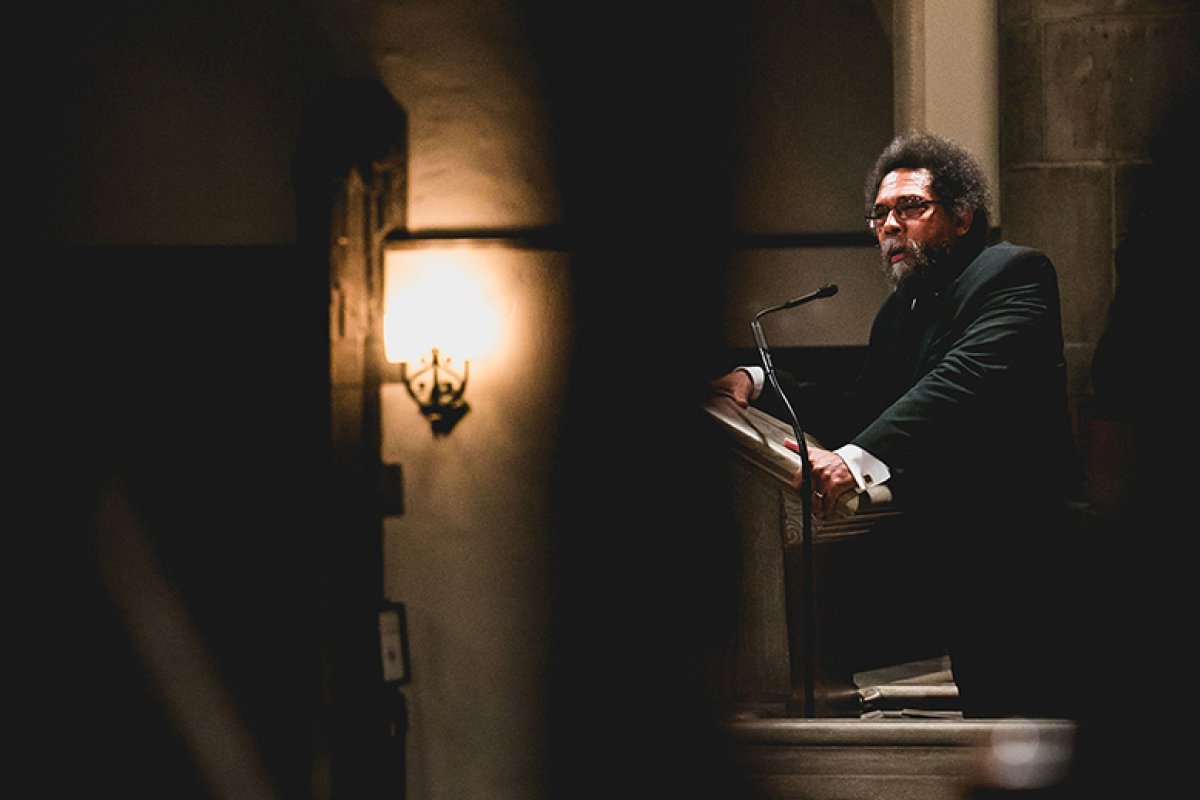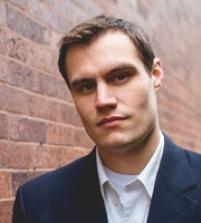
The Prophetic and the Pragmatic in Cornel West
Using the language of prophecy and vocation to describe West’s campaign raises some interesting questions—not only about West but about what it means to be prophetic.
Cornel West, the Dietrich Bonhoeffer Chair at Union Theological Seminary, announced on Monday that he will be running for President of the United States in the upcoming election.
This campaign bid is hard to take seriously. Dr. West will be representing the People’s Party, which was only founded five years ago and has since been mired in controversy. No candidate has ever run for office on that ticket, let alone won. Third parties in the United States have a terrible track record, and a third party has not carried a state in a presidential election in over fifty years. Even those who are enthusiastic about West’s stances on economic justice and anti-militarism tend to be critical of his decision to run, since it could split progressive voters just enough to serve as a “spoiler” and hand the election to the Republican Party. While West’s campaign could make leftism more mainstream in American discourse, these critics point out, it is likely to jeopardize progressive electoral victories and the modest but real benefits they provide to the needy and vulnerable.
Given this risk, which West is surely aware of, why run for office? Looking through the Twitter reactions to West’s campaign announcement, one popular explanation is self-infatuation. Never one to shy away from a spotlight or a microphone, West could be relishing his gadfly persona to the degree that he cares more about getting his message out than the pragmatics of the American political system. Laurence Tribe, Law Professor Emeritus at Harvard, responded, “Ego trips can come at a heavy price, Cornel. Please stop this foolishness before you really hurt the things you care to help.”
Another possible explanation is religious: West is driven by a prophetic sensibility. Though West did not refer to religion in his campaign announcement, over the years he has narrated his activism with reference to liberation theology, Chekhovian Christianity, and the spirituality of the Black church. His books have titles like Prophetic Fragments, Prophesy Deliverance!, and Black Prophetic Fire. In an essay in support of West’s candidacy, author Chris Hedges writes, “Cornel, like the biblical prophets, is driven by an unshakeable belief that our brief sojourn on the planet is validated by what we do for those the world has cast aside. His is not only a political campaign, but a calling."
Using the language of prophecy and vocation to describe West’s campaign raises some interesting questions—not only about West but about what it means to be prophetic. The biblical prophets Hedges alludes to, after all, tended to dramatize injustice more so than take practical steps to alleviate it. Prophetic communication seems like the antithesis of pragmatic calculation, an interruption into our customary modes of trying to make things turn out all right. In customary usage, “prophetic” has connotations of otherworldliness, speech and action that refuse to be justifiable by worldly standards. Even when their messages are clearly political—as they often were—the biblical prophets seem compelled more by divine mandate than tactical effectiveness. When the prophet Isaiah went naked and barefoot for three years, he was not thinking about electability. When Amos warns of divine judgment, he does not seem concerned with long-term strategy. In the Book of Ezekiel, God even tells the prophet, “You shall speak my words to them, whether they hear or refuse to hear.” Jeremiah speaks of his prophecy as a divine compulsion rather than an action to achieve a particular end.
Perhaps, then, we should interpret West’s campaign as prophetic in this sense, an act not concerned with instrumental victories for West or even the causes he supports but an enacted proclamation of another way of being. On this reading, West is being impractical in a way that calls into question customary political wisdom. The campaign announcement involves West speaking of a “quest for truth” and a “quest for justice” and warning about “the escalating destruction of the planet,” in ways that certainly evoke the higher calling of the prophets. This campaign could be “foolishness,” as Tribe puts it, but an attempt at the holy foolishness the apostle Paul writes of (I Cor. 3:19). While I am tempted by this interpretation, I am not persuaded by it, and I think West’s own writings on the prophetic are instructive.
In an interview in 1992, West said, “My notion of the prophetic is a democratic one in which, in the midst of the quotidian, the commonplace, in the midst of the messy struggle in which one’s hands are dirty, that one is holding onto moral convictions and tries to convince others that they ought to be accepted even though these moral convictions can still be subject to criticism and change…” To be prophetic in this sense involves not an outsider’s judgment on the messiness of political struggle but an insider’s willingness to respond to the needs of the moment. Seen through this lens, biblical prophets were using the rhetorical means at their disposal to effect change. Elsewhere West writes approvingly of “prophetic pragmatism,” a marriage of the structural criticism of social injustice from the prophetic tradition and the fallibilism and realism from American pragmatist philosophy. Pragmatism, for West, involves “public testing and open evaluation of consequences,” not simply clinging to ideals. West made a career of insisting that one can combine spiritual convictions with rigorous, self-critical attention to the effectiveness of political actions.
I am not convinced that West’s campaign is particularly prophetic or particularly pragmatic. But it brings into question the relationship between religious criticism and practical approaches to social problems, a relationship that might be closer than we assume. It also provides an occasion to reflect on the ways that electoral institutions like the American first-past-the-post system make it difficult for radical voices to gain traction. That is to say, while I am critical of West’s decision, I am also critical of an electoral system in which “the lesser of two evils” reasoning has become normalized. The democratic “interruption” West talks about—a voice that calls the whole system into question from below—also needs to challenge the process that decides which leaders are elected and which viewpoints are taken seriously.
Image by Charissa Johnson


